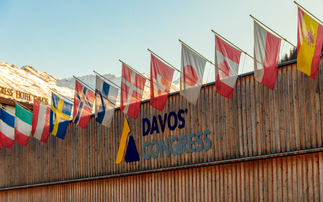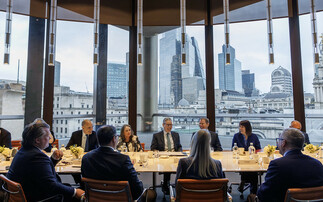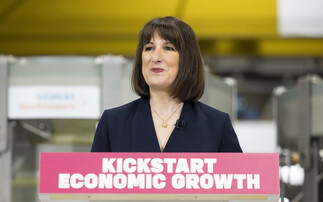There has been a fundamental shift in the dialogue around climate action in the past year, and once again the US President is on the wrong side of history
I've been off on holiday for the past 10 days (family wedding, caravan on the south coast, trip to Peppa Pig World with two young people, all much better than that sounds thanks for asking) and a lot has happened in the interim.
Just to pick a few of the highlights I ascertained while unsuccessfully trying not to check Twitter: the Prime Minister resigned throwing Green Brexit plans into chaos, UK electoral records were smashed by a surge in support for the climate sceptic Brexit Party and the climate emergency-declaring Greens and Lib Dems, the Prince of Wales urged corporate leaders to respond to the climate crisis, IRENA confirmed renewables are now undercutting fossil fuel power in ever more parts of the world, Bill Gates and co dropped €150m of clean tech funding, and the ever expanding field of hopefuls to become the next PM kicked off a dignity-free scramble to see who could hug the biggest husky. All this news was transmitted without a single lump of coal being burnt at a UK power plant.
Returning to work and the customary email in-box implosion this week, it is hard to shake the heartening impression that something in the political and social zeitgeist has fundamentally shifted.
Just take the Tory leadership race and the accompanying response to President Trump's characteristically crass-tacular State Visit. It is great to see outsiders from the One Nation wing of the Party such as Rory Stewart talking of the urgent need to tackle the 'climate cataclysm', but more more encouraging still is the way several of those from the right of the party have chosen to signal their backing for a bold net zero transition.
No-one would mistake Andrea Leadsom for an environmentalist and her record as Environment Secretary was something of a blank page, but she was quick to signal her backing for more ambitious climate action. Michael Gove has described climate change as an "emergency". Boris Johnson made sure the environment got a line in his slickly produced campaign video yesterday and has let wavering moderate MPs know he is supportive of a renewed green push. Dominic Raab's team reportedly signaled he too could back a net zero target if one was adopted.
Those candidates from the Party's libertarian wing have largely kept their counsel, aware that while the Conservative Party still has pockets of climate scepticism there are many more votes to be had from embracing progressive green causes - something the last Conservative PM to win a majority instinctively understood before it all went horribly wrong. The majority of candidates may be happy to countenance an economy-torching no deal Brexit, but they also appear much less willing to countenance an environment-torching high carbon future.
Meanwhile, the howls of protest sparked by Trump's dignity-free State Visit have almost all touched upon his climate scepticism as one of the many reasons to send the US President packing. From scientists and business leaders to MPs and street protestors, the clear conclusion is that the recklessness and irresponsibility inherent in taking the US out of the Paris Agreement is demonstrably counter to UK interests and security - and we should be willing to say so.
At the same time, the level of business support for genuinely ambitious climate action built around climate emergency declarations and net zero transition plans is expanding far faster than anyone expected. As Carbon Credentials CEO Paul Lewis told BusinessGreen this week in a revelatory new interview, in the space of three years science-based emissions targets designed to keep temperature increases below 2C have moved from being the exclusive preserve of a small number of progressive multinationals to being widely regarded as too cautious. "If you fast forward to now, anything that's not 1.5 degrees doesn't really have the credence," he says. "Anything that really doesn't point towards a zero carbon outcome certainly doesn't have the credence."
In a similar vein, CDP today again stresses how the world's largest companies are increasingly cognisant of climate-related risks and opportunities that run to trillions of dollars.
Again, it is worth noting that the companies signalling their support for such rapid and disruptive change are often the most highly regarded and admired businesses on the planet. They are the commercial success stories, the brands we buy into and even love, the cutting edge, future-facing firms graduates want to work for and politicians want to be associated with. They are the firms that for better or worse we tend to idolise and listen to on a raft of other issues, and they are speaking with one voice as they demand a fundamental re-imagining of the economy along decarbonised and sustainable lines.
There is a long, long way to go to turn rhetoric into action and plenty of trigger points where the inevitable backlash will recover its momentum. And yes, some of the corporates and many of the governments hymning the net zero transition are still engaged in greenwash, still wedded to polluting business models, and still kicking tough decisions down the road - a fact evidenced by today's depressing reports that the government could deliberately water down the UK's medium-term carbon targets.
But rhetoric matters, political zeitgeists matter, especially when new thinking becomes normalised and the Overton Window shifts. Coal-free summers, climate emergency declarations, and the environment as a political priority are all on the cusp of becoming the new normal, especially as the climate strike generation comes of age and their parents become more radicalised by the daunting, heat-stressed future their children face.
Something is happening, and President Trump is not going to like it - not one bit.
A version of this article originally appeared in the BusinessGreen Overnight Briefing email, which is available to all BusinessGreen subscribers.









